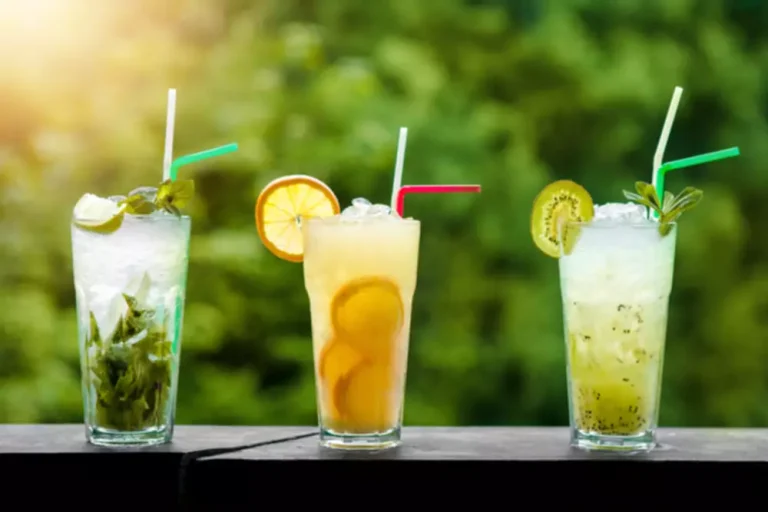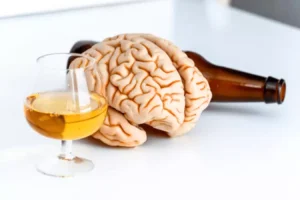There’s a delay in when you feel edibles because it can take time for the THC to be absorbed into your bloodstream. Edibles need to be digested and it can take anywhere from 20 minutes to 2 hours to understand how you feel. Alcohol can contribute to social and behavioral issues, including aggression, mood swings, outbursts, relationship issues, and legal troubles. Alcohol is legal and can be purchased almost anywhere and everywhere. However, is available necessarily a sign that it’s better for you? While both are intoxicants they can affect the body differently and can also impact your health differently.
Marijuana may be harder on your heart, while moderate drinking could be beneficial.
In contrast, “we don’t see any statistically significant effects of cannabis on gray matter or white matter,” Hutchison said. Marijuana use, however, appeared to have no impact on the structure of gray or white matter in either teenagers or adults. Although for palliative care, he said, “that would be a different realm of medicine,” in which the goal is to drug a person so they do not feel pain.
- Keep in mind that there are dozens of factors to account for when comparing the health effects of alcohol and marijuana, including how the substances affect your heart, brain, and behavior, and how likely you are to get hooked.
- When mixing weed and alcohol, there are a lot of other variables to consider in addition to which one you use first.
- Perhaps the biggest supporting evidence for this point is a 2010 study published in The Lancet that ranked alcohol as the most dangerous drug in the United Kingdom, surpassing heroin, crack cocaine, and marijuana.
- Chronic use of alcohol can cause a physical dependency that will require outside intervention to treat this and help you become sober.
- Marijuana, on the other hand, has only more recently started to be regulated.
Relationships Between Hours of Sleep and Health-Risk Behaviors in US Adolescent Students
The researchers reported that combining THC and alcohol consistently impaired driving performance, with worse performance during nighttime simulations. A number of recent studies also focus on how combining weed and alcohol affects your driving. This is because alcohol increases the absorption of weed’s main psychoactive ingredient, delta-9-tetrahydrocannabinol (THC). Occasionally mixing alcohol and weed — also known as crossfading — likely won’t lead to major health problems.
Which is worse, booze or pot? A doctor weighs in
In this story, each blind man touches a different part of the elephant and draws his conclusion about what the elephant is like. One thinks it’s like a wall, another like a snake, and another like a tree trunk, based on the part they touched. Like the blind men and the elephant, we only get a piece of reality that is just a perception.
In short, used moderately (in the case of alcohol) or under the direction of a health care provider (in places where medical marijuana is legal), these substances may have positive health effects. However, they may vary based on who is using either substance, how much they are using, and in what ways they’re using it. But as is often the case, it’s clear that heavy use of either drug may lead to serious health risks. New research suggests the risks of even moderate or light drinking may outweigh the benefits. In June, the World Health Organization said that no level of alcohol consumption is safe for our health.
Get the latest in health news delivered to your inbox!
The use of marijuana, however, seemed to have no significant long-term effects on brain structure. Get helpful tips and guidance for everything from fighting inflammation to finding the best diets for weight loss…from exercises to build a stronger core to advice on treating cataracts. PLUS, the latest news on medical advances and breakthroughs from Harvard Medical School experts.
All of this means that doctors need to ask patients with diabetes about their use of marijuana and other substances. During that time, about 9% of adults with diabetes said they’d used cannabis at least once over the prior month, and the rate rose from 7.7% in 2021 to 10.3% in 2022, a 33.7% rise. If a respondent said that he spent “a great deal” of his time using marijuana and that he sometimes used more than he planned, for example, that would be enough to qualify for the CUD label. Likewise if he reported that he sometimes had “a strong urge” to use marijuana and that he increased his dose to compensate for tolerance.
Some people may consider both substances similar because of how they make you feel. People attribute it to be a social lubricant that allows people to stave off social anxiety and be more outgoing and talkative. It’s important to note that when cannabis gets legalized many people may use cannabis semi-legally by consuming illegally purchased cannabis which can lead to them consuming more than standard dosages.
But even light to moderate drinking can have hazards, like an increased risk for cancer, for instance. Alcohol is a carcinogen, contributing to 5.6% of cancers and 4% of cancer deaths nationwide, according to the National Cancer Institute, which also points out that as little as one drink a day can increase your cancer odds. Excessive alcohol can also flood the body with toxins that may harm your heart, liver, pancreas, gut, lungs, kidneys and immune system, says the NIAAA. The health impact of any drug can depend on how it’s used, who’s using it, how much is used, and under what circumstances.
Keep in mind that there are dozens of factors to account for, including how the substances affect your heart, brain, and behavior, and how likely you are to get hooked. There is also a need for more research into the interaction between alcohol and cannabis, Hutchison said, especially because people who use these substances tend to use both. https://sober-home.org/how-can-i-stop-smoking-crack-archstone-behavioral/ On the other side of the coin, researchers have found that cannabinoids — which are the active compounds in marijuana — could help to prevent migraine, and a more recent study linked marijuana use to an increased sex drive. Across the U.S., however, it is increasingly becoming legalized for both medicinal and recreational purposes.
If you’re experiencing an emergency, please call 911 or visit our Resource Hub to view a list of 24-hour support services and hotlines. It’s a tough call, but based on the peer-reviewed science, there appears to be a clear answer. Heavy drug use is never ideal — and marijuana is no different in this regard. People’s responses to each substance can vary greatly, so what seems safer for one person might not work for someone else. According to the National Institute on Alcohol Abuse and Alcoholism (NIAAA), 15 million people in the United States deal with it. While one person might feel relaxed while drunk, another might feel restless.
While, due to alcohol being legal for decades and drunk driving being illegal for a significant amount of time the law has preset blood alcohol levels to dictate how much alcohol is too much in your system while driving. This post will elaborate on the impacts of alcohol vs. weed on your health, body, driving skills, fatality numbers, and the toll they can take on your life. Although Lehman does not explicitly address the huge gap between his estimate and earlier calculations, https://sober-home.org/ he suggests a possible explanation. Lehman says “around 30 percent of users” consume marijuana “compulsively,” thereby “harm[ing] themselves and the people around them.” For obvious reasons, pot prohibitionists like to cite that seemingly authoritative figure. But this CUD estimate is highly misleading, especially when it is taken to mean that nearly a third of marijuana users are addicts. Because denial is common, you may feel like you don’t have a problem with drinking.
For one thing, the study looked only at marijuana use in the past 30 days, and the participants had fairly low levels of pot consumption. In addition, Hutchison told Live Science, there could be subtle brain changes that the study’s measurements could not capture. “You can die binge-drinking five minutes after you’ve been exposed to alcohol. That isn’t going to happen with marijuana,” said Ruben Baler, a health scientist at the National Institute on Drug Abuse. While both are intoxicants used recreationally, their legality, patterns of use and long-term effects on the body make the two drugs difficult to compare. Weed can also trigger temporary feelings of paranoia and hostility, but it’s not yet clear whether those symptoms are linked with an increased risk of long-term psychosis.
There are also more than 100 different cannabinoids, which are substances found in the cannabis plant. So, the answer to that question may depend on which strain of cannabis you’re smoking or what mix of cannabinoids are in it. When it comes to addiction profiles and risk of death or overdose combined with ties to cancer, car crashes, violence, and obesity, the research suggests that marijuana may be less of a health risk than alcohol. It’s impossible to say whether drinking alcohol or using marijuana causes violence, but several studies suggest a link between alcohol and violent behavior. Before getting into more about safety, it may be helpful to understand some of the key differences between alcohol and marijuana relating to this discussion.
In contrast, Carroll says research shows rates of interpersonal or domestic violence are actually “lower in people who smoke marijuana than people that don’t.” The Well is Northwell Health’s commitment to the future of health care. In this time of information overabundance, much of which is inaccurate, unhelpful, or even difficult to understand, Northwell Health is on a mission to make a difference as an honest, trusted, and caring partner. The site connects with consumers to provide them with personalized content that reduces their stress, makes them laugh, and ultimately feel more confident and capable on their healthcare journey. The research shouldn’t be taken as the be-all and end-all in the great debate over whether cannabis is bad for the brain.
For instance, there’s some research that indicates that for some types of alcohol, a moderate amount could provide protective effects against heart disease for some folks. Similarly, for certain medical conditions such as glaucoma or for those undergoing chemotherapy, marijuana can possess therapeutic properties. These positive effects, however, aren’t necessarily generalizable to everyone who use either substance, nor is it recommended to start using either to reap potential benefits without medical guidance or advice. In November 2017, a group of the nation’s top cancer doctors issued a statement asking people to drink less. Keep in mind that there are dozens of factors to account for when comparing the health effects of alcohol and marijuana, including how the substances affect your heart, brain, and behavior, and how likely you are to get hooked. The researchers looked at brain scans from about 850 substance-using adults ages 18 to 55 and about substance-using 440 teens ages 14 to 19, all of whom reported varying levels of alcohol and cannabis use.










